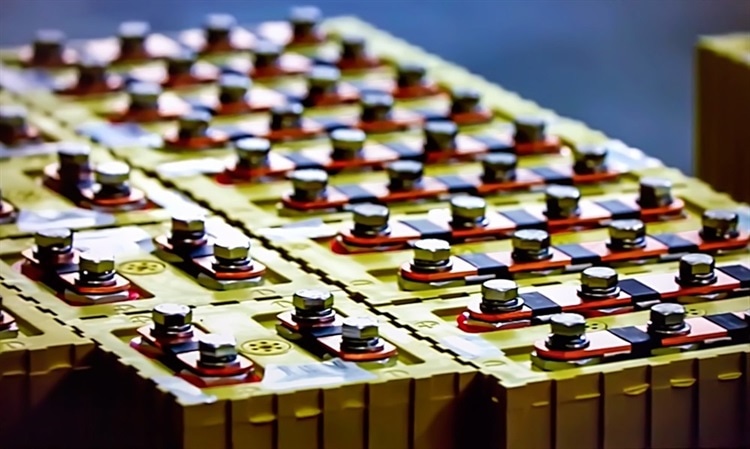AI-Powered Breakthrough: Transforming Lithium-Metal Battery Research with Smart Electrolyte Databases
Published on Quantum Server Networks | June 27, 2025

In a significant leap toward next-generation energy storage, researchers at the University of Surrey have launched a groundbreaking project aimed at revolutionizing lithium-metal battery (LMB) development. With funding from the newly established UK research hub AIchemy, the team is building a publicly accessible, AI-enhanced database to optimize electrolyte design—one of the most complex and critical components in battery performance.
The Challenge: Too Much Data, Too Little Structure
Every week, hundreds of scientific publications address lithium battery electrolytes, but the data landscape is chaotic—fragmented, inconsistent, and difficult to compare. This slows down innovation, as researchers rely heavily on trial-and-error experimentation in the absence of a standardized dataset. The new initiative seeks to solve this by employing large language models (LLMs), machine learning, and high-throughput simulations to mine, clean, and organize the avalanche of scientific information available.
The Vision: Computation-Ready Electrolyte Data
Led by Dr. Neubi Xavier and Dr. Matthias Golomb, the project focuses on extracting and standardizing electrolyte performance metrics from published literature. These metrics include conductivity, electrochemical stability windows, viscosity, compatibility with lithium metal, and more. The ultimate goal is to offer a computation-ready cloud database that accelerates discovery and allows researchers to design new electrolyte systems with minimal guesswork.
“Lithium-metal batteries hold enormous potential for energy storage, but their commercial viability is limited by poor cycle life and unwanted side reactions. We hope to change that by allowing for more efficient and targeted research.”
— Dr. Neubi Xavier, Research Fellow, University of Surrey
Why Focus on Electrolytes?
Electrolytes are the "bloodstream" of batteries—carrying ions between the anode and cathode. In lithium-metal batteries, conventional liquid electrolytes often cause dendrite formation, leading to short circuits, overheating, or even explosions. As a result, identifying and optimizing new electrolyte formulations is essential to unlock the full potential of LMBs, which promise significantly higher energy density than lithium-ion batteries.
The Role of AI and Machine Learning
By integrating LLMs and machine learning algorithms, the Surrey team aims to:
- Systematically scan and interpret scientific publications.
- Identify patterns and performance trends across electrolyte formulations.
- Generate predictive models to suggest promising new electrolyte chemistries.
- Facilitate collaborative efforts with a free, open-access interface for researchers worldwide.
This represents a major shift toward data-driven materials discovery, turning what was once a labor-intensive, manual process into a streamlined computational pipeline.
Broader Impact: Grid Storage and EVs
With better electrolytes, lithium-metal batteries could outclass current lithium-ion batteries in terms of energy density, lifespan, and cost-effectiveness. This would have profound implications for electric vehicles, grid storage, and portable electronics—key pillars in the global transition to renewable energy.
According to Dr. Golomb, “Without a breakthrough in energy storage, our technological progress is held back. That’s why we want this platform to be accessible to everyone and to set new standards in battery science.”
Original Article and Source
Read the original article: AZoM – Scientists Develop AI Database to Accelerate Lithium-Metal Battery Research
Conclusion
By blending artificial intelligence with electrochemistry, the University of Surrey's project offers a visionary path forward for lithium-metal batteries. As energy demands rise and sustainability becomes paramount, AI-powered materials databases could define the next chapter in battery innovation.
Stay tuned with Quantum Server Networks for more updates on AI in materials discovery and the future of advanced energy systems.
Sponsored by PWmat (Lonxun Quantum) – a leading developer of GPU-accelerated materials simulation software for cutting-edge quantum, energy, and semiconductor research. Learn more about our solutions at: https://www.pwmat.com/en
📘 Download our latest company brochure to explore our software features, capabilities, and success stories: PWmat PDF Brochure
📞 Phone: +86 400-618-6006
📧 Email: support@pwmat.com

Comments
Post a Comment